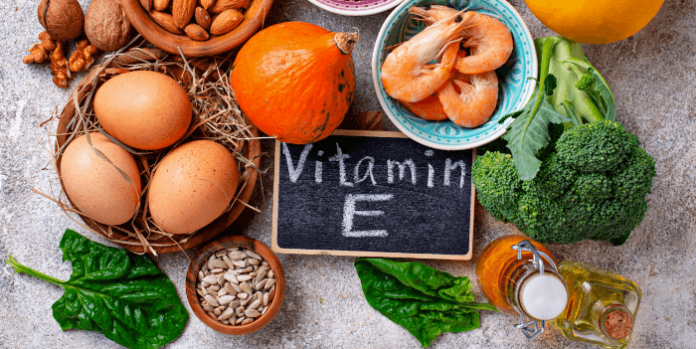In the wake of the Covid-19 pandemic, scientists and medical professionals have been diligently researching various aspects of the virus, its effects, and potential treatments. One such area of interest is the connection between Covid-19 and vitamin E deficiency. Vitamin E is a crucial nutrient that plays a vital role in maintaining a healthy immune system and protecting our body against oxidative stress.
In this article, we will explore the relationship between Covid-19 and vitamin E deficiency, shedding light on its impact on the human mind. Let’s delve into the details step by step.
What is Vitamin E?
Vitamin E is a fat-soluble antioxidant that protects cells from damage caused by free radicals, unstable molecules that can harm the body’s tissues and organs. It exists in eight different forms, but alpha-tocopherol is the most active form for humans.
Importance of Vitamin E
Vitamin E is essential for maintaining healthy skin, eyes, and a robust immune system. It also plays a crucial role in maintaining the health of blood vessels and promoting good circulation. Besides, vitamin E is believed to have cognitive benefits that directly impact the mind.
How Does Covid-19 Affect the Immune System?
Covid-19 is primarily a respiratory illness caused by the SARS-CoV-2 virus. When the virus enters the body, the immune system recognizes it as foreign and initiates an immune response. In severe cases, the immune system’s response can be overly aggressive, leading to a cytokine storm, which can damage organs and tissues.
Role of Vitamin E in Boosting the Immune System
Vitamin E is known to strengthen the immune system by neutralizing free radicals and reducing inflammation. A well-functioning immune system is better equipped to fight off infections like Covid-19, potentially reducing the severity of the illness.
Understanding Oxidative Stress
Oxidative stress occurs when there is an imbalance between free radicals and antioxidants in the body. This imbalance can lead to cellular damage and is associated with various health conditions.
How Covid-19 Triggers Oxidative Stress
Studies have shown that Covid-19 can induce oxidative stress in the body, contributing to the progression of the disease. This stress may lead to damage in the brain and nervous system, affecting cognitive functions.
The Protective Role of Vitamin E
Vitamin E’s antioxidant properties help combat oxidative stress, reducing the risk of cellular damage. By doing so, it may have a protective effect on the brain and the mind, potentially mitigating cognitive impairments caused by the virus.
Symptoms of Vitamin E Deficiency
Vitamin E deficiency can lead to various health issues, including muscle weakness, vision problems, and impaired cognitive function.
Impact of Vitamin E Deficiency on the Mind
A deficiency in vitamin E has been associated with cognitive decline, memory problems, and an increased risk of neurodegenerative disorders like Alzheimer’s disease. In the context of Covid-19, individuals with a pre-existing vitamin E deficiency might be more vulnerable to cognitive issues.
Supporting Covid-19 Patients with Vitamin E
As research continues, healthcare professionals are exploring the potential benefits of administering vitamin E as part of the treatment for Covid-19 patients. The aim is to reduce oxidative stress and support the healing process.
A Holistic Approach to Mind Health
While vitamin E supplementation may be beneficial, it’s essential to adopt a holistic approach to mind health. This includes maintaining a balanced diet, engaging in regular physical activity, managing stress, and seeking professional medical advice when needed.
Conclusion
The connection between Covid-19 and vitamin E deficiency mind is a complex and fascinating topic. Vitamin E’s role in supporting the immune system and combating oxidative stress makes it a potentially valuable component in the fight against Covid-19 and its impact on the mind.
However, more research is needed to fully understand the extent of this relationship. In the meantime, prioritizing a healthy lifestyle, including a balanced diet and proper supplementation, can contribute to overall mind health during these challenging times.
FAQs
- Can vitamin E prevent Covid-19 infection? Vitamin E is not a direct preventive measure against Covid-19 infection. Still, it can support a healthy immune system, which may improve the body’s ability to defend against infections.
- Are there any side effects of vitamin E supplementation? When taken within recommended doses, vitamin E supplements are generally safe for most individuals. However, excessive intake may cause side effects like nausea and diarrhea.
- Is vitamin E a cure for cognitive disorders? Vitamin E is not a cure for cognitive disorders, but it may have a supportive role in maintaining brain health and reducing the risk of cognitive decline.
- Can vitamin E deficiency be reversed? In many cases, vitamin E deficiency can be reversed with appropriate supplementation and dietary changes.
- Should I take vitamin E supplements without a deficiency? It’s essential to consult with a healthcare professional before starting any supplements, even if you don’t have a deficiency, as excessive intake may lead to adverse effects.
Sources
Mayo Clinic: https://www.mayoclinic.org/healthy-lifestyle/nutrition-and-healthy-eating/expert-answers/weight-loss/faq-20459961
Harvard Health Publishing – Harvard Medical School: https://www.health.harvard.edu/staying-healthy/diet-and-weight-loss-myths-busted
National Institute of Diabetes and Digestive and Kidney Diseases (NIDDK): https://www.niddk.nih.gov/health-information/weight-management/adult-overweight-obesity/nutrition-weight-loss
The New England Journal of Medicine (NEJM): https://www.nejm.org/doi/full/10.1056/NEJMp2033215
World Health Organization (WHO): https://www.who.int/news-room/q-a-detail/coronavirus-disease-covid-19-nutrition-advice




